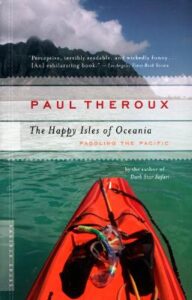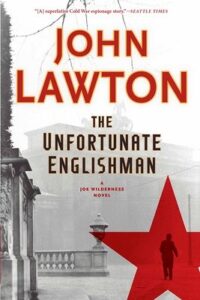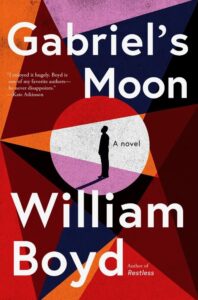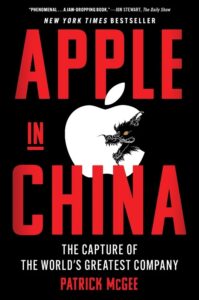A very busy weekend, at least the front half.
A Wedding
Friday evening we all went to the wedding of O, the oldest daughter of our neighbors at our old house. M was a bridesmaid, her first of many I’m sure, so it was an extra big deal for her. It was a very nice ceremony and reception; the bride and groom seemed to be having an awesome time which is most important.
The most fun part of the event was the mix of cultures. O’s husband is Hispanic; he was born and raised here but his parents and most of their generation came from Mexico at some point. So there was a lot of Spanish in the air. There was a mariachi band that played before dinner. The food was Mexican. The DJ’s were Hispanic. We laughed at some of the culture clashes in how the DJ’s ran their part of the night. Lots of talking over the various moments like the cutting of the cake, father-daughter dance, etc., encouraging people to applaud throughout rather than after. Most of the white people music was stuff like “The Electric Slide,” etc that was some form of coordinated dance. Then it was almost all Mexican tunes, which was when the part really lit up. At one point the groom’s stepmother danced through the entire hall, handing out whispy glowsticks and forcing everyone to get out on the floor and wave them in time to the music. There were no words, she’d just hand you the stick and move on. I had to assume this is something that is normal at Mexican weddings?
Anyway, a very fun night. M’s boyfriend came up and hung out for the rest of the weekend, too.
Weather
Man, did we get perfect weather for the wedding! That was key as the reception, while inside, was in a room that had garage doors that could open to an outdoor area. It was in the upper 70s and clear to begin, pleasantly cool when we left at 10:30.
This has been a deceptively hot summer. We haven’t come close to hitting 100° on the thermometer, and in fact are behind normal in days over 90°. However, it seemed like for six straight weeks every day was 87–89° with ridiculous humidity, so the heat index was always deep into the 90s. A few days early last week it was over 110°.
We had heavy rains come through Thursday morning and that both cooled it off and took the humidity with it. You could not have asked for a better weekend in early August. We have one, maybe two more days of that left before the heat returns.
A Trip Back
Saturday afternoon S and I drove up to some farmland that her dad owns that is about 30 minutes north of the city. It had been eight or nine years since she had been up there and she wanted to take a look at it again.
There is an old, unoccupied house on the land that looks super creepy. We just looked at it from afar. You never know who or what might be in these abandoned homes. There was a hole that seemed perfect for raccoons and other critters to access one of the upstairs bedrooms.
I enjoyed S recognizing parts of the area as we drove through it. Her family lived about a mile from this land until she was in seventh grade, but she still remembered the names of a lot of families that had lived around there in the ‘70s and ‘80s. She showed me how far she and her siblings were allowed to ride bikes on a gravel road. I’ve been out there a couple times in our 22 years here and development keeps getting a little closer. It was really interesting to imagine how remote it was when they lived out there. Famously she and her brother got plopped onto snowmobiles and were carried on them to the nearest open road to catch the school bus after the great blizzard of 1978.
I like to pull up Google Maps and look at the places I lived growing up. For all the places I lived before we moved to Kansas City, which would have been the same age when S lived in the country, I can barely remember anything about those areas. Impressive that she could recall so much. Of course we moved a lot where she lived in the same home for the first 12 years of her life, so it’s a little different.
We also drove around the luxury neighborhood that is not too far away. Its golf course is hosting a LIV Golf tournament next weekend, and preparations were already in place. It was pretty impressive to see the TV towers already built, a new, temporary club constructed near the first hole, and other signs that a pro golf event will be held there. It’s also indicative of LIV that this event is being held on a random, neighborhood course in the Indianapolis suburbs.
We looked in this neighborhood eight years ago, more to get ideas than anything else. It was WAAAAY out of our price range. The two homes we looked at backed up to a fairway on the front nine. It would have been fun to heckle the guys who have taken the Saudi blood money from the comfort of my back porch.
Royals
Hey, the Royals had a good trade deadline! At least according to the experts. They brought in a couple halfway decent bats to platoon in right field. They added some arms. They didn’t give up much. They also re-signed Seth Lugo rather than trading him. Then they won two of three in Toronto.
However, it seems like every time they get a little warm, a matching cold streak is soon to follow. They are without shouting distance of the Wild Card, but with so many teams in the mix it will take a truly scorching stretch of baseball to nab a postseason spot.
I’m not sure if any of the deadline moves are needle movers for this year, but the return of Lugo and the additional arms should keep pitching a strength next year. Now if they can just find a real bat or two for the outfield in the offseason…
Fever
The Fever have won five straight, the longest current winning streak in the WNBA and the franchise’s longest run in a decade. And Caitlin Clark hasn’t played a single one of those games. Hmmm…
I mean, at some point, some talking head is going to jump on that point, right?
It’s not really a fair argument, since when she has played this year, she’s never been 100% healthy. It’s been a series of lower body injuries that have hampered her. I think you can chalk up some her increase in turnovers and lower shooting percentage to her bottom half never being right.
What I notice, too, is that when she’s not on the court, the ball really moves. There is a lot of motion in the Fever’s base offense, but when she’s on the court, the ball is almost always in her hands. With her out, it zips just as much as the people without the ball move.
I’m no coaching expert – my middle school experience is clear evidence of that – but I wonder if the key to unlocking the Fever’s full potential is, once Clark is healthy again, taking the ball out of her hands a little. I don’t think you turn her into a 2-guard; she’s too good of a passer to not want her running the offense. But maybe less of her dribbling, probing, and looking for either a cutter or shot for 24 seconds and more early actions and then getting it to back to her late in the shot clock and then letting her operate?
Again, it’s hard to evaluate her and the team when she hasn’t been healthy. As she keeps breaking down, there are questions of whether it makes sense to bring her back this year. If the Fever keep winning without her, and remain in the upper half of the playoff hunt, I think you sit her as long as you can and try to bring her back in September to work back into shape and be ready for the playoffs, and hope she re-integrates quickly.




